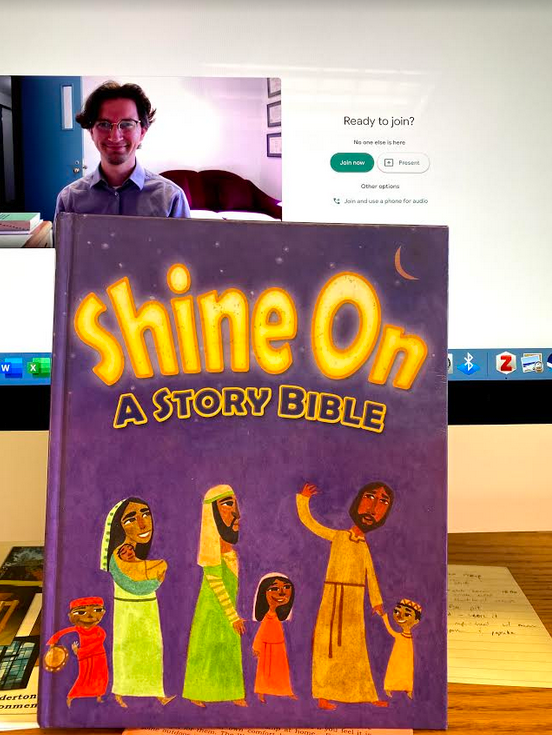by Jordan Luther, Zion (Souderton, PA) congregation
If your congregation is like mine, then you are familiar with the revolving door of Sunday school attendance most summers. This summer, however, the situation was different. With most of our congregation still worshiping from home, we needed to rethink how we do Sunday school—especially for our children.

Our youth group has been meeting virtually for youth group and Sunday school throughout the pandemic. One day I floated the idea about meeting as a joint Sunday school class of all ages, K-12. I was clear from the beginning that I could not teach this class alone. I needed help.
When I asked the youth group if they would be willing to help, I was amazed with their response. Not only did they agree to help, but they agreed to be co-leaders and share responsibilities with me!
The following week at youth group we built our five-week summer Sunday school curriculum from the ground up. The youth were really helpful during the planning process, sharing what they believe is most important for Sunday school from a kid’s perspective. I learned two lessons that I hope never to forget from these sessions.
The first lesson the youth taught me is that stories are important. Stories are easier to remember than Bible memory verses. (Sorry Psalms and Romans … maybe another unit!) The youth shared with me about which Bible stories are relatable and memorable to them.
We took notes on our favorite Bible stories and made a plan. Thankfully, all of the stories the youth chose were featured in Shine On: A Story Bible curriculum which made reading and sharing the story much easier for our younger classmates.
Second, the youth taught me that Sunday school should be a fun experience. “Don’t be boring,” was one youth’s advice to me. “Adults like to talk; kids need action.” This comment made it crystal clear that playing games is important to our faith development too.
A different youth suggested that we should create original prompts in Quiplash 2 and Drawful 2, two online games that we play regularly together, as a way to have fun while going deeper into the Bible story. The youth and I created the prompts ahead of time after reading the Bible story together. Our prompts were meant to inspire everyone’s imagination and give us permission to wonder about some of the missing details of the story. Think Jewish midrash meets Family Feud. That was our Sunday school environment.
Our joint Sunday school sessions had their hiccups too. Sibling rivalries are just as apparent on screen as they are in-person. Poor wifi connections meant the occasional robot voice and frozen screen.
Even with these hiccups in mind, I am still grateful for this joint Sunday school experiment. It was a great opportunity for our younger kids to reconnect, our youth to lead and participate in the planning process, and for me to consider fresh approaches to family ministry.
The opinions expressed in articles posted on Mosaic’s website are those of the author and may not reflect the official policy of Mosaic Conference. Mosaic is a large conference, crossing ethnicities, geographies, generations, theologies, and politics. Each person can only speak for themselves; no one can represent “the conference.” May God give us the grace to hear what the Spirit is speaking to us through people with whom we disagree and the humility and courage to love one another even when those disagreements can’t be bridged.
